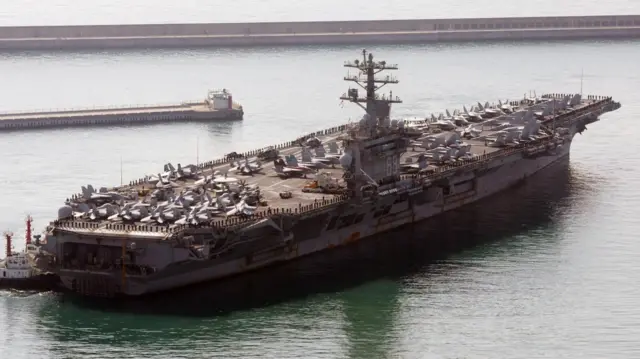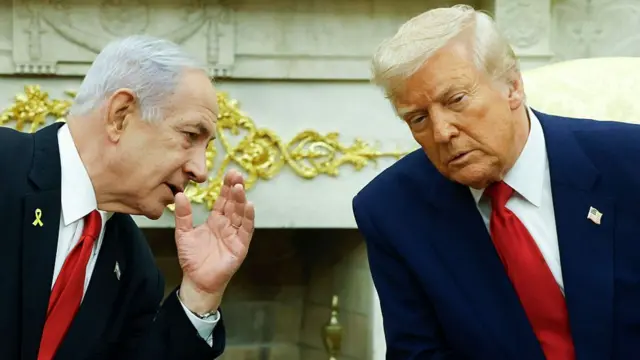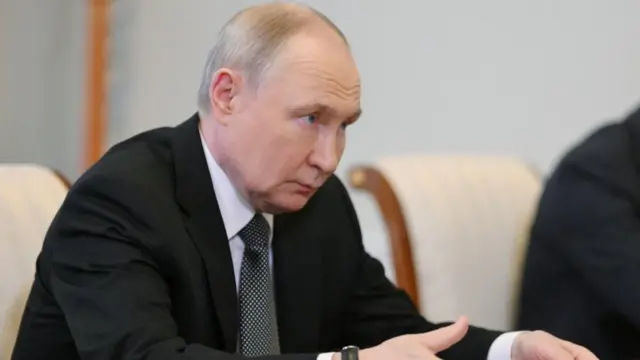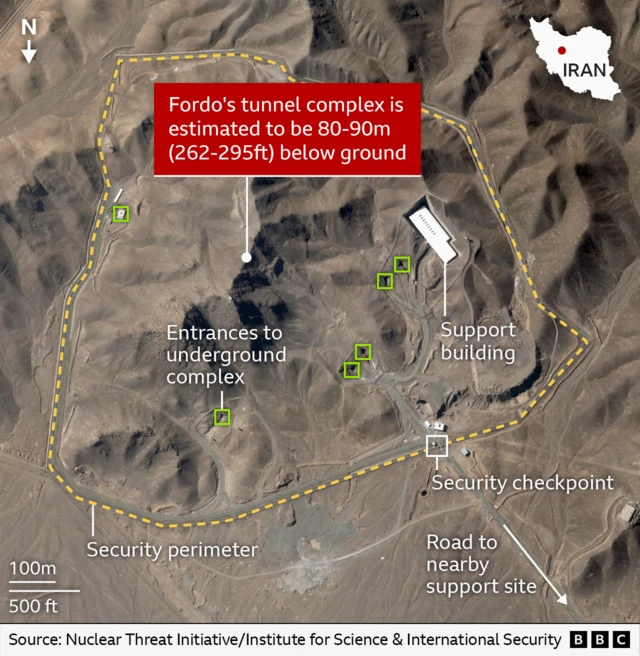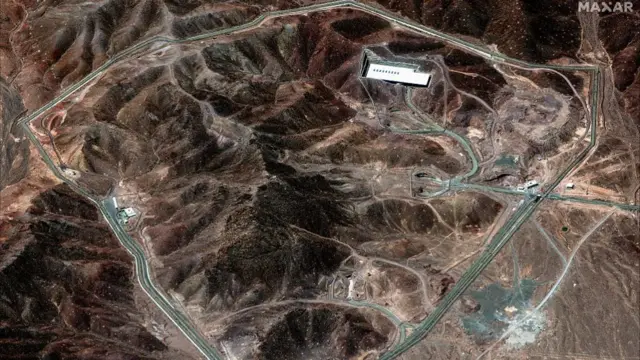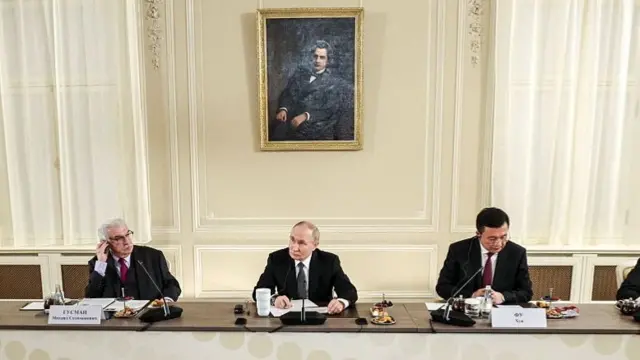Trump considers strikes at Iran as Middle East volatility deepenspublished at 04:00 BST 19 June
US President Donald Trump has approved plans for the US to strike at Iran but is still weighing a final decision, according to US media, including the BBC's US media partner CBS News.
At issue is the Fordo enrichment site, an underground facility vital to Iran's nuclear programme. Only the US has the capability to potentially destroy it.
Publicly, Trump has remained equivocal about what he plans to do. "I may do it, I may not do it. Nobody knows what I want to do," Trump has told journalists. "But I can say this: Iran's got a lot of trouble and wants to negotiate."
Iran's Foreign Minister Abbas Araghchi is planning to attend talks in Geneva with his UK, German and French counterparts on Friday.
Meanwhile, Israel is continuing another night of attacks in Iran, conducting a series of strikes in Tehran while warning residents in Arak and Khandab to evacuate.
We are now pausing this live page, but do keep up-to-date on the BBC.
